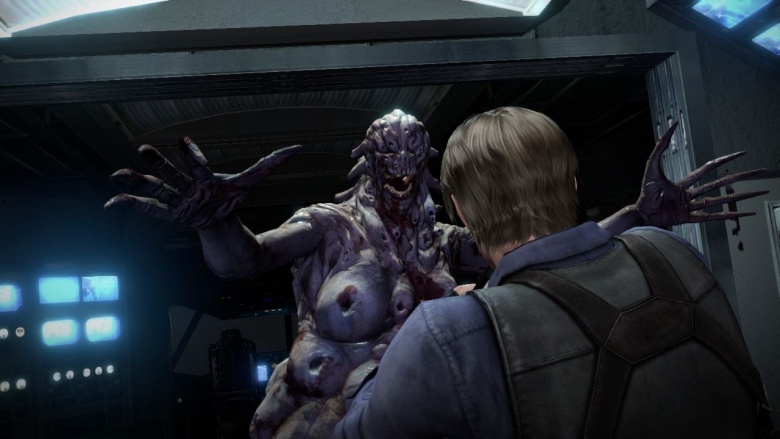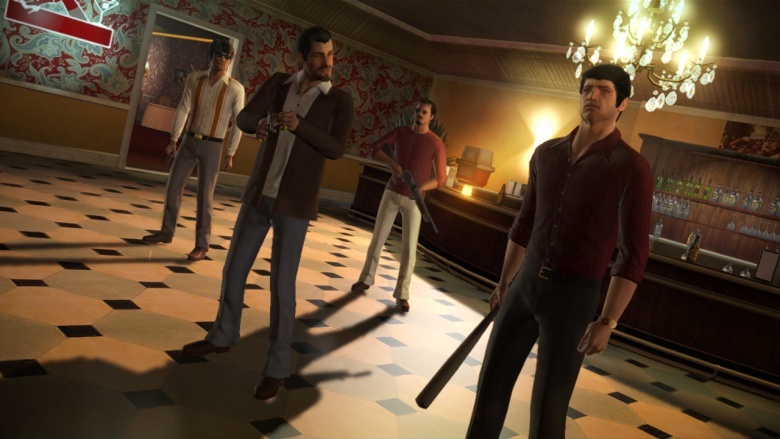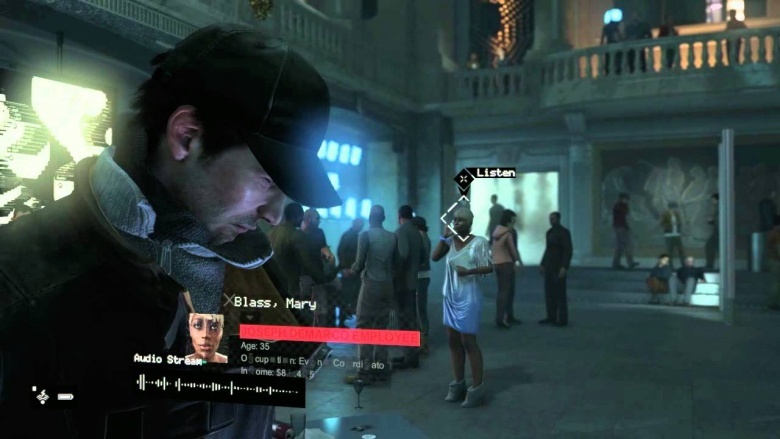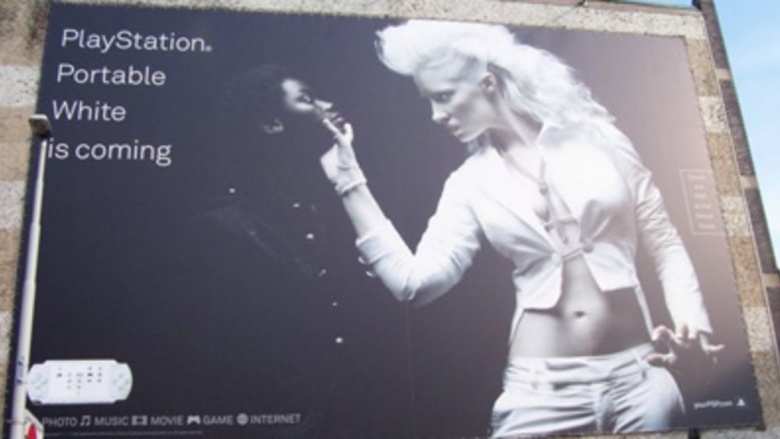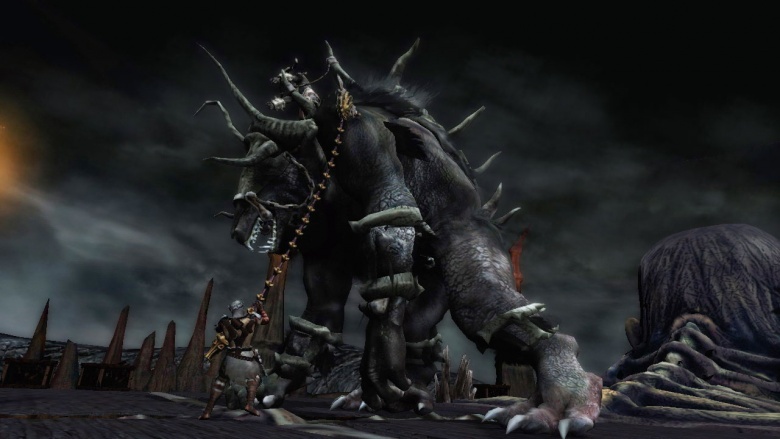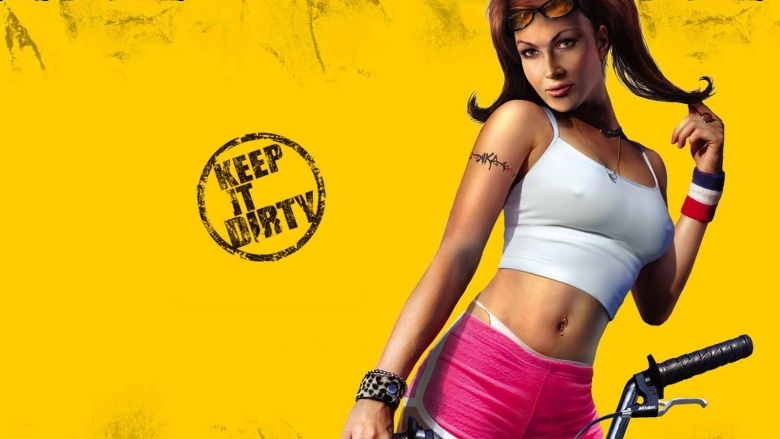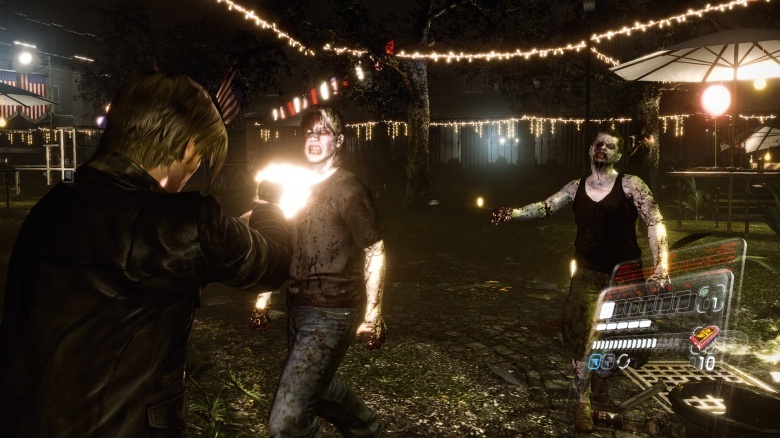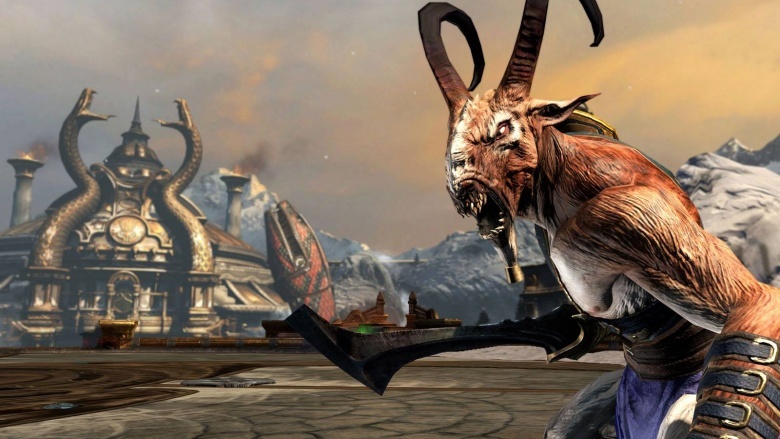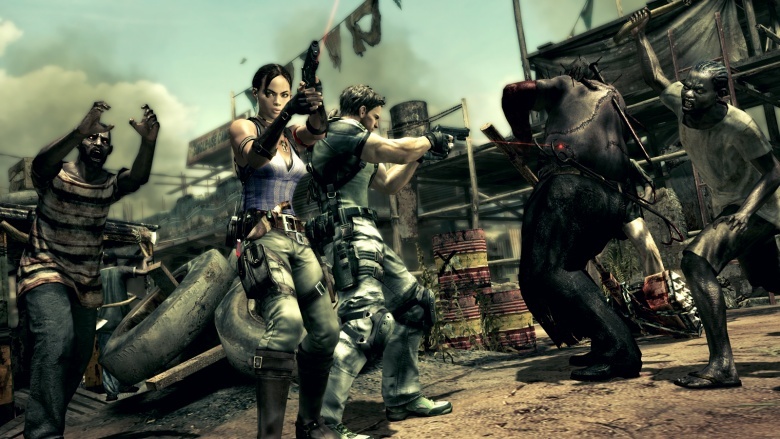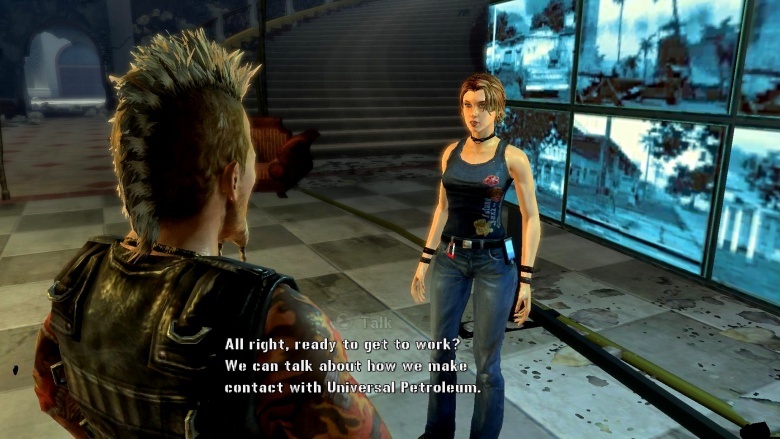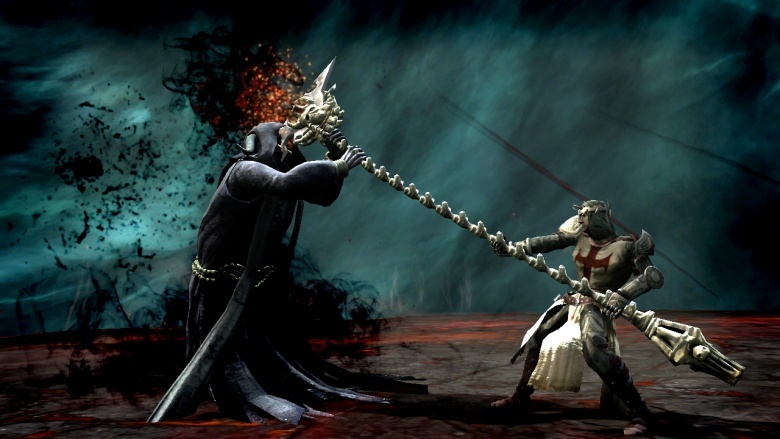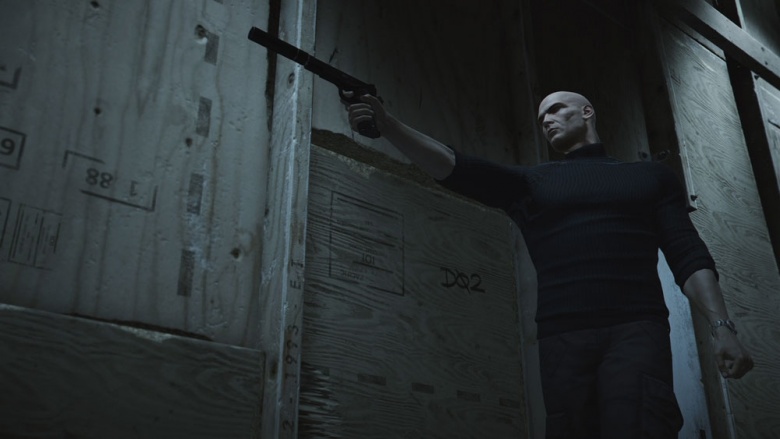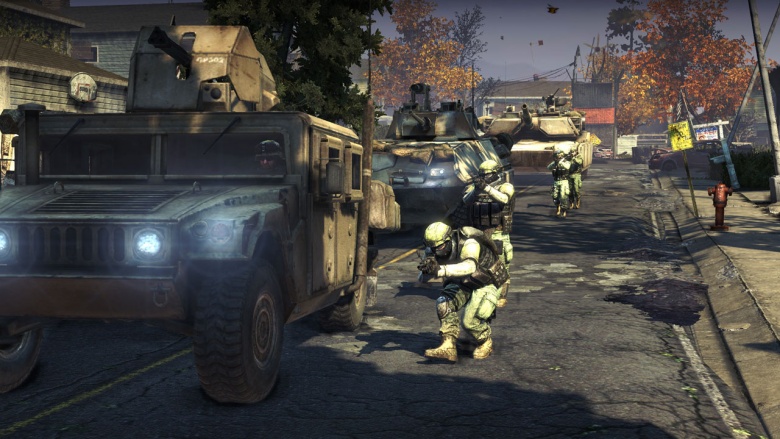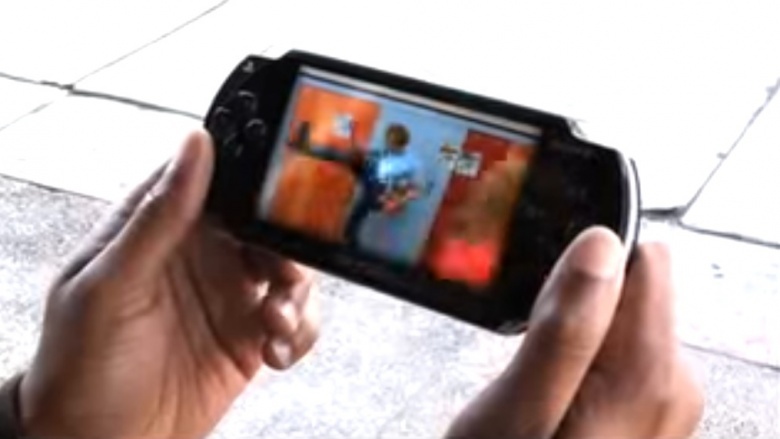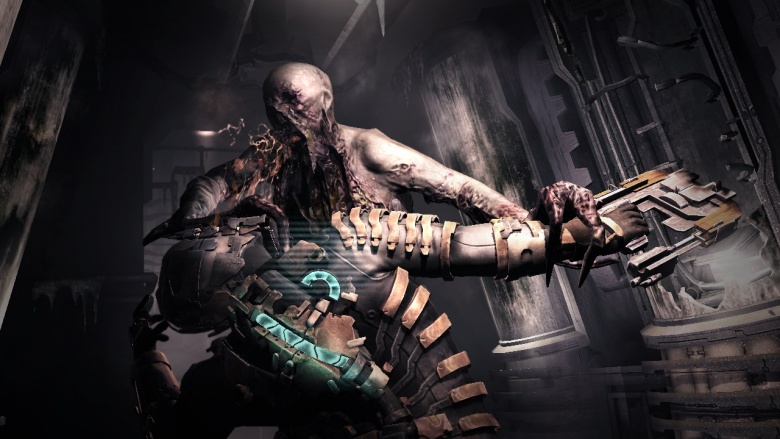Worst Ideas Gaming Companies Ever Had
Let's imagine, for a minute, that you work for a video game company. You are not, unfortunately, responsible for coming up with the next revolutionary storyline, side quests that contain some subtle nudity and brilliant jokes, or anything about the actual game whatsoever. Instead, it's your job to make sure the unwashed masses are aware that this particular game is going to be hitting the shelves, and just how are you going to do that? The ideas are endless, but unfortunately, there's a fine line between brilliance and insanity.
EA sent the press real brass knuckles for The Godfather II
So, you've been handed the task of putting together some press kits for the release of The Godfather II. They're going to be expecting some serious mafia style, and what says "I'm a badass mobster" more completely than brass knuckles?
So that's exactly what EA sent writers across the country in 2009. The press kit included a review copy of the game, a cigar (thoughtful), a wire (weird, and less thoughtful), and a set of very real brass knuckles (illegal). Brass knuckles are very definitely considered a weapon, and just having them is illegal in a massive number of states, including EA's home state of California. While that makes us wonder just how they managed to get a bulk shipment of all these brass knuckles in the first place (just mailing them is also illegal), the story isn't over quite yet.
It didn't take long for EA to realize they'd just equipped writers across the country with deadly, illegal weapons, and since we know writers, we know just how bad of an idea this is. EA realized this had all gone wrong, and sent out a follow-up request. While they truly hoped that everyone had enjoyed their "novelty brass knuckles," they would be sending a pre-paid envelope for every press kit recipient to return them, in order to ensure they were properly disposed of. You know, now that they'd presumably spent the whole afternoon finding stuff around the office that they could punch.
Ubisoft sends a "bomb" to a website's headquarters
Let's face it, getting the mail isn't nearly as exciting as it was when you were little, and there was the possibility to find something other than bills waiting for you. Whatever you might find in your mailbox, however, it's likely less terrifying than the small, black safe dropped off at the headquarters of the Australian web group Ninemsn in 2014. The safe was accompanied by instructions for one reporter, who was told to check their voicemail. There was no voicemail, but there was a number attached to the safe. When they tried it, it didn't open.
It started to beep.
After the bomb squad had been called (and, presumably, after everyone had changed their pants), they found the safe contained a review copy of Ubisoft's new game, a beanie, and a baseball cap. Ubisoft apologized, saying that the code was supposed to open the safe, and the non-existent voicemail was supposed to have warned the office what was going on.
In theory, it sort of made sense. They were promoting the game Watch Dogs, where gamers could play as a hacker and control things remotely. In reality, though, it was completely not cool. Unfortunately, Ubisoft apparently wasn't as efficient as their virtual hacker.
Sony's black vs. white ad campaign
We like to imagine ad campaigns go through a certain sort of checklist, where marketing departments ask themselves things like, "Is this what gamers want?" and "Is there any way this could be perceived as horribly racist?" Sony doesn't seem to have any such quality control, and when the ad campaign for the White PSP hit the streets in the Netherlands, literally every other person in the world could see what was wrong with it.
Along with the slogan, "Playstation Portable. White is coming," the billboard featured a very, very white woman leaning forward to grab the face of a very black woman looking up at her in fear.
Even without seeing the image, you could probably still tell us exactly why this is not a good thing. Sony stood by the image, claiming that it absolutely wasn't meant to be racist at all. According to their statements following the online outrage and campaigning for the ads to be taken down, they said the ad was a part of a larger series of 100-odd ads that were simply meant to show the different colors of the PSP: black, white and ceramic white. They used words like "stunning," but that didn't keep others from thinking words like "colonialism" and "white supremacy."
Activision live-tweets a fake terrorist attack on Singapore
It's no secret that we live in troubling times, and there's no telling what kind of horrible news you're going to see when you get up in the morning. So when people saw a Twitter account called Current Events Aggregate apparently live-Tweeting a terrorist attack in Singapore, they were understandably upset.
The account continued to Tweet about emergency crews and military personnel that were on the scene, and it wasn't until the end of the story that the account also tweeted that the whole thing was an inside look at Call of Duty: Black Ops 3. It's not clear how many of the account's two million-odd followers guessed that it was a viral marketing campaign, but even responses from those who did get it pointed out that it was in incredibly horrible taste. After all, it wasn't happening terribly long after similar attacks in China and Thailand were reported in the exact same way.
Game lead Jason Blundell issued an official apology, but it was sort of an odd one. He said, "It was absolutely not done for any kind of attention in any way. It was not done maliciously, or as any kind of scare tactic."
Really? Not done for attention?
EA asks customers to grope con booth girls and win a "Night of Lust"
Gaming conventions have a certain image, and to those who aren't going, it's probably a pretty negative one. EA didn't help matters any when they came up with a completely cringe-inducing promotion for the Dante's Inferno booth at 2009's Comic-Con.
Booth babes are a convention staple — scantily-clad women who bare it all to entice gamers over to the booth. But EA went a step further, and advertised a contest that instructed con attendees to "commit acts of lust" with a booth babe for a chance to win an entire "Night of Lust" with two of them. That "Night of Lust" was advertised as being a "sinful" night out on the town with "two hot girls, a limo service, paparazzi, and a chest full of booty."
Given that's really all the contest advertised, it's not surprising that a lot of people took the whole thing as being less than innocent photo-fun, and more sort of gropey-rapey. EA issued a follow-up statement that tried to clarify things, stating that what they actually meant by "commit acts of lust" with was nothing more than "take a picture with." And that sinful night out was but a mere chaperoned, all-expenses-paid, night out on the town.
They insisted that the whole thing was supposed to be very tongue-in-cheek, and simply a part of a series of promotions based on the Circles of Hell from Dante's literary Inferno. That month just happened to be lust, but seriously? Encouraging straying hands and who-knows-what-else just isn't cool, guys.
Acclaim uses Dave Mirra's image in a porn-esque BMX game
There are a few ways that you know you've officially "Made It." Being on a late-night television show? Definitely cool. Having a video game made about your exploits? Infinitely more awesome. That's why we totally get why BMX legend Dave Mirra was completely stoked about Acclaim's developing a video game using his name and image. That stockedness did not last long.
According to the lawsuit that followed the game's release, Mirra had signed on to the project when it looked something like a mature, but tongue-in-cheek, sort of game. What he definitely hadn't signed off on was a porn-esque version of BMX racing, and that's exactly what BMX XXX turned into.
We'll give you some highlights, including selectable characters like Hellkitty and Joyride, a leopard-print, mini-skirt wearing woman who has clearly made questionable occupational choices. Overreacting, you say? Probably not, considering one of the good deeds you can do in the game (for extra points, naturally) is pick up the women standing on the street corners and drop them off at seedy motels, earning points for every "Hooker delivered." What's the point of those side quests and that extra cash? That's the only way you're going to get into the strip club, of course! Ask a silly question.
Trust us, it only gets more painfully juvenile from there, and it's not surprising that Mirra wanted nothing to do with the game. He ended up suing for $20 million, saying that his connection with the game severely damaged his reputation. The lawsuit brought claims of breach of contract, defamation of character, false advertising, unfair competition, and invasion of privacy to the table too, and who can blame him? The suit was ultimately dropped with the removal of Mirra's name from the entire project, and we're pretty sure that's not enough to keep anyone from feeling just a little bit dirty. We certainly do.
Capcom opens a human butcher shop
Just days before the 2012 release of Resident Evil 6, London's historic Smithfield Market got a new butcher shop. It was called "Wesker & Son Resident Evil Butcher Shop" with the front window filled with what looked like human body parts. On one hand (geddit?), it's a pretty cool idea, and we wish we'd thought of it. The meat was of the standard, non-human variety, and it was actually up for sale. Proceeds from Capcom's butcher shop were donated to the Limbless Association, a UK charity for amputees.
So far, so good ... gross, but good. Even their location was pretty epic, and for those that aren't familiar with London's medieval history, Smithfield Market is an area that was used for the execution of criminals in the 13th century. Since the Middle Ages it's been known as a livestock and meat market, so kudos to Capcom for doing their research.
Unfortunately, things went a little sideways. Four years after the marketing stunt (which was met with mixed reactions at the time), photos of the distinctly human-shaped meat started making the rounds on the internet. This time, the "leaked" photos were proof that China was selling tinned human meat to overseas customers, with the story going massively viral and some even speculating that there was such a high supply of bodies because clearly, China was running out of burial space and had to do something with the corpses. At the same time the Chinese government had to issue a formal statement, African governments also needed to step in to reassure their citizens that they hadn't been eating people-meat. Knowing the internet, we give it another two years before the story crops up again, because old photos don't die, they just change origin stories.
Sony's goat sacrifice
The game was God of War II, and we're pretty sure there's all kinds of awesome marketing opportunities that can be found here. Unfortunately, Sony went the "dead goat" route, and that led to all sorts of fallout, and at least two entirely different versions of what actually happened. One version seems to be traced back to the Daily Mail, because of course it can be.
The Daily Mail piece ran in May 2007, and claimed that Sony had used a headless goat corpse as a centerpiece for their launch party. It went on to claim that guests were invited to root around inside the dead goat for their meal (intestines), while mostly naked girls handed out grapes. They then went on to publish some horribly graphic photos of the event — and the bloody goat — that first appeared in Sony's Playstation Magazine.
Other, more reputable organizations did some more research to find out just what had gone on at the launch party. While no one had actually eaten anything out of the goat, and it had been slaughtered ahead of time, the rest of the horrible, no-good, incredibly inappropriate idea was pretty true. Sony told their magazine division to recall all the issues of the magazine that they'd printed with the graphic pictures of the goat, which was probably the last thing readers were expecting to see when looking for the latest and greatest game promo shots.
While they admitted the dead goat photo was an official one, they also managed to make it sound like they hadn't intended for it to run. And some people got it anyway, with subscribers sent their copies before anyone realized that it was something that probably shouldn't have, well, been. The official statement read, "We recognize that the use of the dead goat was in poor taste and fell below the high standards of conduct we set ourselves."
Yes. We're not sure how anyone ever thought this was a great piece for atmosphere.
Capcom leaves body parts across London
The human butcher shop from earlier was just one of the grisly Resident Evil PR stunts, and for the 2009 release of Resident Evil 5, the PR firm Monument sent dozens of people on a scavenger hunt across London. They were looking for body parts filled with raw chicken livers (for ambiance), and anyone who's the least bit familiar with the dangers that come with raw chicken has probably already spotted the first flaw in an otherwise not-so-brilliant plan.
Not only were the police swamped with calls reporting the discovery of body parts strewn across London, but the contest hit a snag when some of the body parts (which needed to be retrieved for a chance to win a grand-prize trip to Africa) went missing. What exactly people decided to do with them, we're not sure we want to know.
Capcom just loves their fake body parts, and they were going to take another crack at it in 2013 for Resident Evil: Revelations. The plan was to fill a 55,000-gallon swimming pool with blood and simulated (we hope) body parts, and have people dive for prizes. That one was thoughtfully cancelled after the grisly beheading of Lee Rigby.
EA's free gas giveaway
There's a couple universal truths in life, and one of those is that people love free stuff. It doesn't even matter what it is, people will swarm a con booth giving away pencils if they're free. If it's something they can actually use, especially if that something is normally insanely expensive, then what could ever go wrong?
Mercenaries 2: World in Flames came out in 2008, and one of the core components of the game is the use of fuel as currency. So EA decided it was a brilliant idea to give away tons of free fuel—literally. While the stunt (shockingly) worked in LA, they were less successful when they arranged to give away £20,000 of free petrol in London. (That's $25,000 in free gas, for those that only speak American.) They picked a station in North London for the giveaway, and if you're the least bit familiar with London streets, you know you don't so much drive on them, as you just sort of hold your breath and scrape your way through.
It's not surprising that traffic not only turned into a gridlock, but according to some people that were stuck in traffic, not a few shouting matches broke out among people waiting, queuing for petrol, or just trying to get through. (Presumably, they were polite shouting matches.) Those that actually managed to get their £40 of petrol before the event was shut down were thrilled, but they were the only ones psyched about the traffic jam. Security personnel were eventually called in to control fighting and clear up the mess, and we're pretty sure that's the only time in history that LA residents were more understanding and polite than Londoners.
EA protests itself
Stick with us on this one, as this goes sideways in ways EA clearly never expected, but probably should have.
In June 2009, a relatively small group of Christian protesters were seen picketing the LA Convention Center. They were protesting Dante's Inferno, and they were holding signs that said things like, "My high score is in Heaven" and "Just Say infer-NO!" Not surprisingly, most people seemed to look at the whole thing and think, "Hey, look, it's a PR stunt," rather than the intended "Gee, I have to check out this game to see what has these good, decent, God-fearing folks so worked up."
Also not surprisingly, EA came out and admitted they'd hired the protesters themselves. Apparently, they're not familiar with the internet's capability to be offended over absolutely everything, and they found themselves the target of some good, old-fashioned Christian rage. Groups like the Catholic Video Gamers (yep, they're a thing) and the folks over at InsideCatholic.com got all up-in-arms over the idea that they were being portrayed as crazy, sign-touting fundamentalists who would protest anything and everything. Margaret Cabaniss of InsideCatholic.com wrote, "It's been clear for a while now that the entertainment industry views Christians on the whole as priggish, thin-skinned, fun-killers."
The irony of their protesting a fake protest was completely lost on them.
Square Enix wants you to assassinate your friends
What says "friendship" better than some good old-fashioned cyber-bullying? If you said, "How about some online death threats?" then congratulations, you think like the marketing team behind Square Enix's Hitman.
In 2012, the gaming giant attempted to drum up some talk about Hitman, their sniper shoot-'em-up, by making an app that let you experience all the wacky fun of taking out contracts on people in a very real-world way, as long as you're friends (or rather, "friends") on Facebook. Hilarious pranksters could send their "friends" messages, saying they'd taken a hit out on their lives for a number of hi-larious reasons. Some of the reasons you could take out a hit on your friends included, "her hairy legs," "her muffin top," "her awful make-up," and "her annoying laugh." Not only did the target receive a message that they were in someone's sights, but they got to watch a video of their profile picture being assassinated, too.
Unfortunately for Square Enix, this kind of "joke" toes the line of illegal something fierce. It turns out that sending death threats on the internet is actually frowned upon, and the Supreme Court has been arguing over whether or not it's a legitimate crime. Now, in 2015, the SCOTUS decided intent to commit the crime was necessary for it to be a crime, but insisting to the judge you were just making a jokey joke isn't often successful.
Besides, whether or not you really wanted to kill that soulless ginger because of "her ginger hair" (yes, actually an option), or accuse a friend of cheating on their significant other, it's clear the app was in horrendous taste. Square Enix realized their misstep pretty quickly, and pulled the app less than a day after launching it.
THQ releases 10,000 balloons, doesn't realize they have to come down
When THQ released Homefront in 2011, a game about Korea uniting and conquering the US, they figured the best way to drum up some publicity for the game was to stage a real-world protest of game events. Protesting the Korean government wasn't the weirdest part of the event, however — that was when they decided to release 10,000 red balloons over the environmentally-conscious San Francisco Bay.
See where this one's going? THQ didn't, and they released their balloons on a rather rainy day. In the abstract, the balloons were supposed to represent messages of hope sent from South Koreans to the North — in reality, each balloon contained a certificate for some in-game bonus loot, including an exclusive weapon. Gamers love exclusive stuff, but what environmentalists absolutely don't love is when 10,000 balloons get caught in a storm and dump themselves right back into the bay.
THQ's attempts at damage control didn't make it any better, and even though they issued a statement claiming that these particular balloons were 100 percent biodegradable, people were quick to point out that they weren't doing any degrading right now — instead, they were garbage floating in the bay. They were also a massive choking hazard to all the wildlife that called San Francisco's waters home, and that's definitely not cool.
Even as GameStop (THQ's partner in ballon-y pollutant crime) denied any knowledge or involvement in the stunt, THQ was hit with a $7,000 fine. If it were up to us, we would've tacked on something extra to the fine, just for their unforgivable failure to do something clever with "99 Red Balloons."
Sony advertises the PSP with a graffiti campaign
Graffiti is pretty polarizing. While some people might call it art, others call it vandalism. Sony seems to think it's somewhere in between, and absolutely believed it would make a great medium for their advertising campaign for the PSP. The fallout? It didn't come just from the people you're expecting.
The 2005 marketing campaign targeted the country's major cities, and the gaming giant hired street artists to decorate the streets with images of people playing the PSP. They were almost immediately vandalized, including some with text deriding Sony's "advertising directed at your counter-culture." Sony responded by saying that these people were exactly the target audience, a demographic they called the "urban nomad." These are the people who needed their access to the internet and their gaming in one easy-to-carry package, after all, and how better to announce the PSP? Judging by the appearance of "Fony" spray-painted over some of the ads, not all urban nomads were thrilled.
At least one city, Philadelphia, issued a formal statement to Sony, and asked them to please stop defacing their city. But Sony had learned from the past, paying the property owners involved for permission to put up their graffiti campaign adverts. That's absolutely not what happened four years prior when IBM tried the same thing, and was hit with $120,000 in fines and clean-up fees for their little stunt.
EA films moms horrified by Dead Space 2, to make kids want to buy Dead Space 2
It's one of the most basic rules of the gaming world: women can't be gamers. Women definitely can't be gamers if they're moms, because that goes against the very laws of nature, and ... What's that, you say? That's absolute and complete sexist garbage? Well, someone should've let EA in on that little secret, before they kicked off their "Your Mom Hates Dead Space 2" campaign, where 200 moms watched clips from Dead Space 2, grasping at imaginary pearls the whole time while gasping things like, "Why would they even make something like this?" and "I think it'll make a person become insane!"
As you might have guessed, the ads were all about showing (presumably, young male) gamers that they absolutely needed to buy Dead Space 2, because their moms wouldn't approve. More than that, those moms were going to be horrified by what their little angels were playing, and that makes it cool, right? At least EA didn't suggest these highly uncool moms thought they were watching a snuff film. But still, the oversight on this one's pretty terrible for bunches of reasons, and the outcry over this campaign took aim from all sorts of angles. The biggest one is the idea that it's somehow still 1940, and that mothers should be shouting about their highly offended, delicate sensibilities, probably from the kitchen while putting on their high heels and getting ready to bake an apple pie to cool on the windowsill.
But, in addition to playing on massively offensive stereotypes, EA also got in trouble for according to Common Sense Media, trying to market an M-rated game to younger kids. Other, less legal-eyed gamers were annoyed by EA insinuating we're a childish lot who makes choices based on what would annoy Mom the most, because we're still living in her basement, aren't we?
